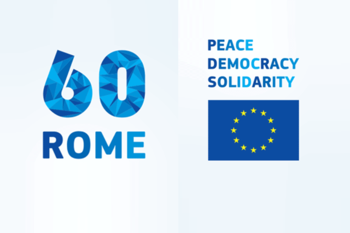Covid19, Europe between failures and supremacies
 The clear inability of the European governments to face the crisis should lead to a rapid strengthening of the European Union for a unitary, coordinated and rapid management of health, economic and social emergencies. Having lost its digital and productive supremacy, Europe must not give up its cultural and civil supremacy.
The clear inability of the European governments to face the crisis should lead to a rapid strengthening of the European Union for a unitary, coordinated and rapid management of health, economic and social emergencies. Having lost its digital and productive supremacy, Europe must not give up its cultural and civil supremacy.
The West flounders between Covid infections and the struggle to overcome the economic crisis. China has the virus under control and promises vaccines to the rest of the world, thanks to its manufacturing supremacy.
USA is beset by the pandemic, engaged in a more than mediocre electoral battle, but it has with Google, Amazon, Facebook, Apple and Microsoft a digital supremacy that can hardly beundermined by new players.
The governments of the European countries facing the pandemic are showing all their inadequacies. The virus containment measures have been ineffective given the exponential growth of infections in the last days in almost all Member States.
Entire economic sectors - tourism, transport, catering - are going to close down if it has not already happened. The interventions launched to counter the dramatic reduction in GDP will not be effective if this level of gravity persists for long time and if new generalized lockdowns are implemented. Public debts cannot be repaid if economic growth is not consistent in the years to come.
The summer respite was not exploited either for a radical strengthening of health systems, nor for an adequate tracing of infections, nor for the mass production and distribution of swabs and flu vaccines.
The contrast between the mediocrity of the Western governments and the efficiency of the Eastern ones is now evident, basically always a cold war - not so veiled - between democracies and totalitarian regimes.
The ineffective strategies of the former versus those immediately implemented by the latter. The needs of the cumbersome coordination in Europe against the Chinese dirigisme that immediately decides and implements.
The latest emblem of the difficult coordination in Europe is the stalemate between Parliament and the European Council (in fact the Governments of the Member States) on the approval of the 2021-2027 budget, to which Next Generation EU is connected, which everyone still calls the Recovery Fund, perhaps because young people and their future do not deserve to be considered.
In summary, the former asks for a few billion euros more and an increase in own resources (budget revenues) through a web tax and financial transaction taxes. The second, under the German presidency, seeks mediation. The issue, however, does not deserve enough attention from TV and newspapers, committed to following sterile polemics between representatives of the government, party, virologists, immunologists and various opinion leaders.
Incredible how at a time when social inequality is growing strongly due to the crisis, it is not possible to find a way to tax those who instead increase their profits, both with digital services and finance. The last unregulated excessive financial bubble already caused the 2008 dramatic economic crisis.
The EU institutions were quick to intervene in the emergency. The ECB buys public debt securities issued thanks to the suspension of the stability pact immediately decided in Brussels. The European Commission authorizes the aid schemes that States use to launch interventions to support the economy. Then it puts € 37 billion on the Coronavirus Response Initiative and publishes calls to finance research on the disease and the vaccine. The EIB reserves € 40 billion to guarantee loans for companies affected by the crisis.
The prerogatives of the European institutions, however, are limited by the current legal configuration of the EU, by the short-sighted greed for power of national politicians, who do not transfer it to Brussels at least for the matters that would allow a real change. Governance and bureaucracy are the key words behind an evolution that must be decided now.
When an EU country is on the verge of bankruptcy, experts from the EU Commission, the ECB and the IMF intervene to find and find recovery solutions.
If European countries do not have the capacity to face emergencies, it is time to have at least the humility to recognize it and to entrust the responsibilities to those who can govern the crisis and Europe in a coordinated, unified and effective way.
Overall vision and European interest must override the petty and small political struggles in the various countries, in order not to lose Europe's cultural and civil supremacy.
"Together we stand, divided we fall" (The Wall, Pink Floyd). Another context in the famous piece, but useful for understanding. Humility and respect for European values and citizens: "don't tell us there is no hope".


